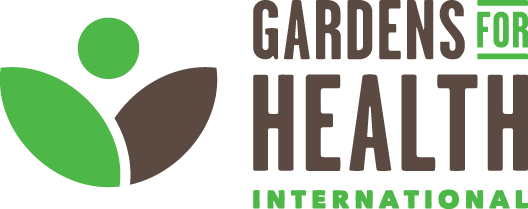Empowered Mothers as Agents of Change
POST AND PHOTOS BY MAGGIE ANDRESEN // PUBLISHED MAY 2018
We are proud to work with mothers who are leading the fight against malnutrition in their homes. Our trainings are designed to empower women with the knowledge and skills to keep their children healthy and inspire change in their communities. Gender imbalance and a lack of education for women and girls are contributing factors to malnutrition. Changing the paradigm that allows these conditions to exist will result in an empowered population with the agency to make the right decisions for their families.
A graduation ceremony at Musanze Health Center.
Investing in educational initiatives not only creates a generation of women better equipped with the skills to raise healthy children, it tends to delay marriage and childbirth so that women are more financially and socially secure before becoming mothers. Because women and mothers make up one third of the world’s malnourished population, educating women to be agents of change is key to finding a solution to fight hunger and malnutrition. Empowering women to be authoritative in family decisions has been linked to higher percentages of family income being allocated to food purchases. Educating girls also initiates a trend of educated women sending their daughters to school, perpetuating a social norm of educated girls and women that further enriches economic development.
A training on family planning at Busogo Health Center in Busogo, Musanze.
Education has always been central to GHI’s model. Our trainings are comprehensive, addressing the root causes of malnutrition as well as its symptoms. Topics such as gender based violence (GBV), mental health, and listening and communication may seem at surface level unrelated to solving malnutrition, but these factors often relate directly to problems of food security and undernutrition in the household and the ability of mothers to feed their children. Unstable households are at a higher propensity for food insecurity, therefore tackling malnutrition in the long term requires an integrated approach. Our model unites health and nutrition trainings with hands-on farming practicals that demonstrate the use of our agriculture inputs. This multifaceted approach is built for long-term impact, not short-term fixes.
Claudine, a recent graduate of GHI, smiles at her son Itashako during last season’s introductory agriculture training in Busogo, Musanze
By participating in sustainable, nutrition-sensitive agriculture, these mothers nourish the earth as they nourish their families. Our trainings equip them with the knowledge needed to get their children healthy, and empower them to become changemakers in their communities through initiating peer education between family and neighbors. We believe in women. We know that when mothers are educated about health and have access to nutritious foods, their children and communities will prosper.
--
Dutewe ishema no gukorana n’ababyeyi bayoboye urugamba rwo kujyanya imirire mibi mu ngo zabo. Amahugurwa yacu agamije kongerera abagore ububasha mu ubumenyi n’ubuhanga bwo gukomeza gutuma abana babo bagira ubuzima buzira umuze no kuzana impinduka mu miryango migari batuyemo. Ubusumbane bw’ igitsina no kutiga kw’abari n’abategarugori bifite uruhare runini mu byongera imirire mibi. Guhindura amahame atuma ibyo bibaho bizatuma habaho abaturage bafite imbaraga n’ubushobozi bwo gufatira imiryango yabo ibyemezo nyabyo.
Muri iki gihe, gushyira imbaraga mu burenzi bw’ibanze ntago bifasha gusa abagore kugira ubumenyi bwo kurera abana bagakurana ubuzima bwiza, ahubwo binatuma batihutira gushaka no kubyara. Ibyo bigatuma bageza igihe cyo gushinga ingo zabo biteguye mu buryo bw’ubukungo ndetse n’imibanire yabo n’abandi. Gufasha abagore kuba abakangurambaga b’impinduka bizafasha mu kubona igisubizo cyo kurwanya inzara n’imirire mibi, kuko abagore bagize kimwe cya gatatu cy’abafite imirire mibi ku isi. Guha abagore ububasha bwo kugira ijambo mu byemezo by’umuryango bafite ikigereranyo cyo hejuru mu ijanisha ry’ikoreshwa ry’ umushahara w’umuryango mu kugura amafunguro. Kwigisha abari kandi, bitangiza umurongo mugari w’abagore ndetse bakohereza abakobwa babo mu ishuri, bitanga kandi umuco w’abari n’abategarugori bize ndetse bakagira n’uruhare mu iterambere n’ ubukungu bw’igihugu.
Uburezi bwakomeje kuba inkingi muri gahunda y’Umurima w’Ubuzima. Amahugurwa yacu arumvikana, yibanda ku mizi y’ibibazo by’imirire mibi hamwe n’ibimenyetso byayo. Ingingo z’ingenzi nk’ihohoterwa rishingiye ku buringanire n’ ubuzima bwo mu mutwe, kumva no gutanga ubutumwa bishobora kuba biri ku kigero cyo hasi mu gukemura no kurandura ibibazo by’imirire mibi, ariko izo ngingo zibanda cyane cyane ku bibazo by’umutekano w’ibiribwa no kubura intungamubiri mu ngo, ndetse zikibanda no ku ubushobozi bw’ababyeyi mu kugaburira abana babo. Ingo zitishoboye zifite ibyago byinshi byo guhura n’ikibazo cy’umutekano muke w’ibiribwa. kubw’ibyo rero, kubasha guhangana n’ ikibazo cy’imirire mibi mu buryo burambye bisaba ubufatanye burambye. Gahunda yacu ibumbira hamwe ubuzima, Amahugurwa ku byerekeranye n’imirire ndetse n’ibikorwa by’ubuhinzi byerekana ikoreshwa ry’umusaruro uva mu buhinzi. Ubwo buryo bwashyiriweho inyungu zirambye zitari iz’igihe gito.
Mu kugira ruhare mu buhinzi bwibanda ku mirire myiza mu buryo burambye, abo babyeyi bagaburira isi nk’abagaburira imiryango yabo. Amahugurwa yacu atanga ubumenyi bukeneye kugirango abana babo bagire ubuzima bwiza, kandi akongera ububasha bwo kuzana impinduka mu miryango biciye mu guhugurana hagati y’umuryango n’abaturanyi. Twizera abagore kuko tuzi ko iyo ababyeyi bize ibyerekeranye n’ubuzima bakabasha kubona ibiribwa bifite intungamubiri, abana babo ndetse n’umuryango mugari utera imbere.



